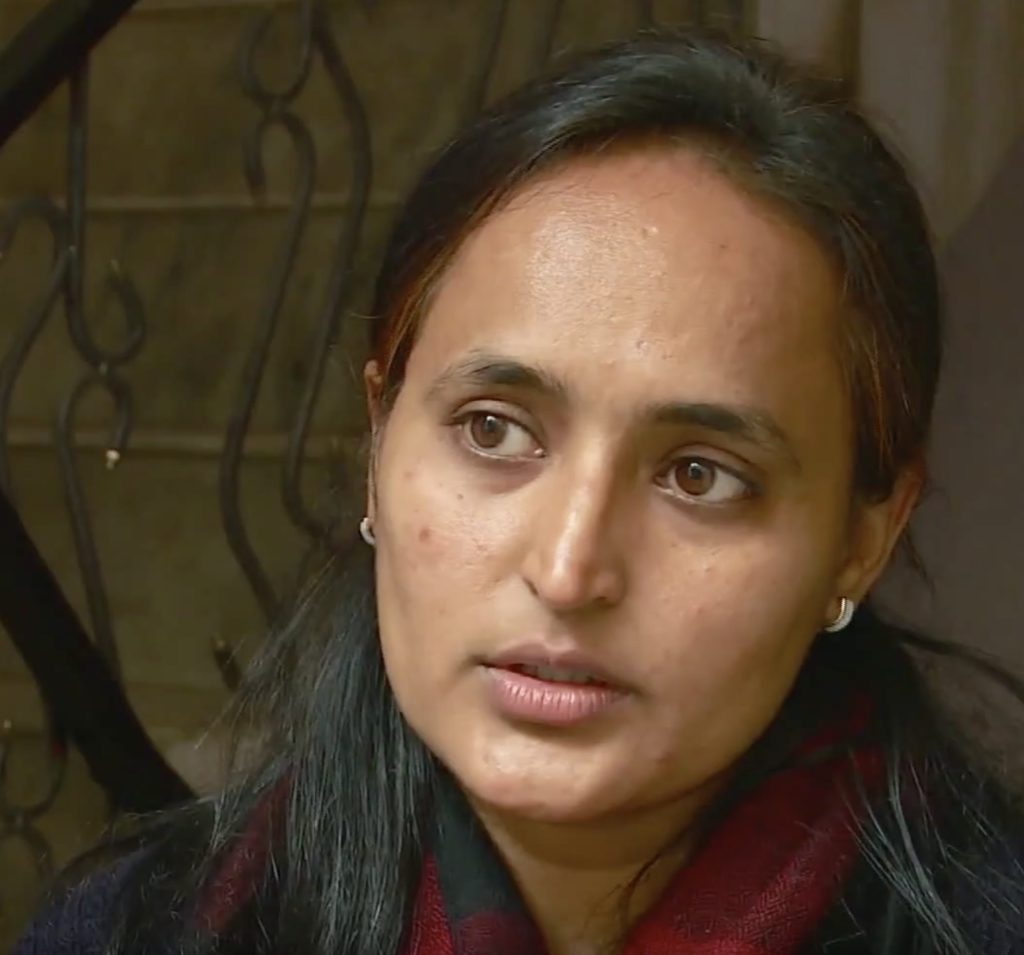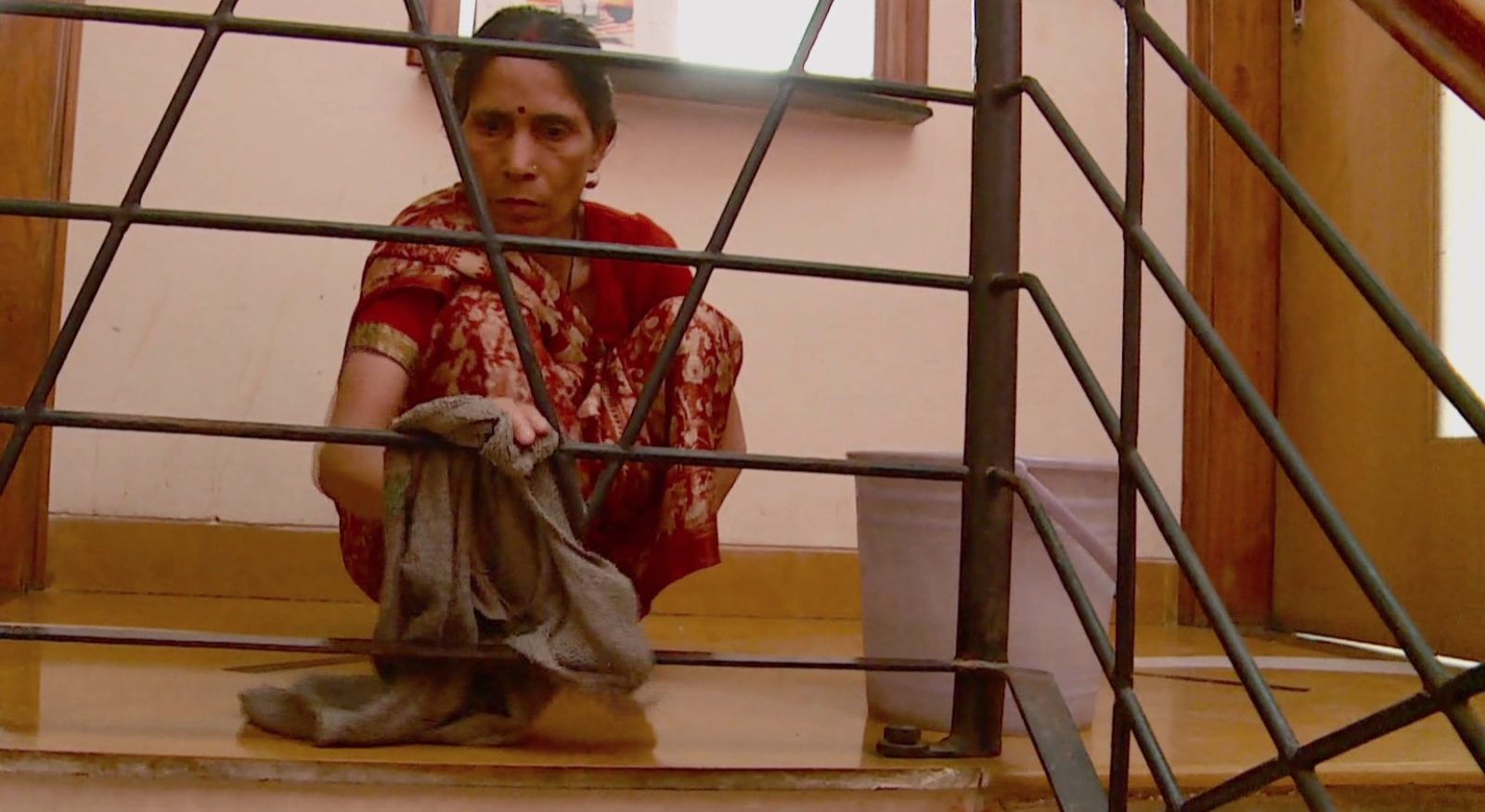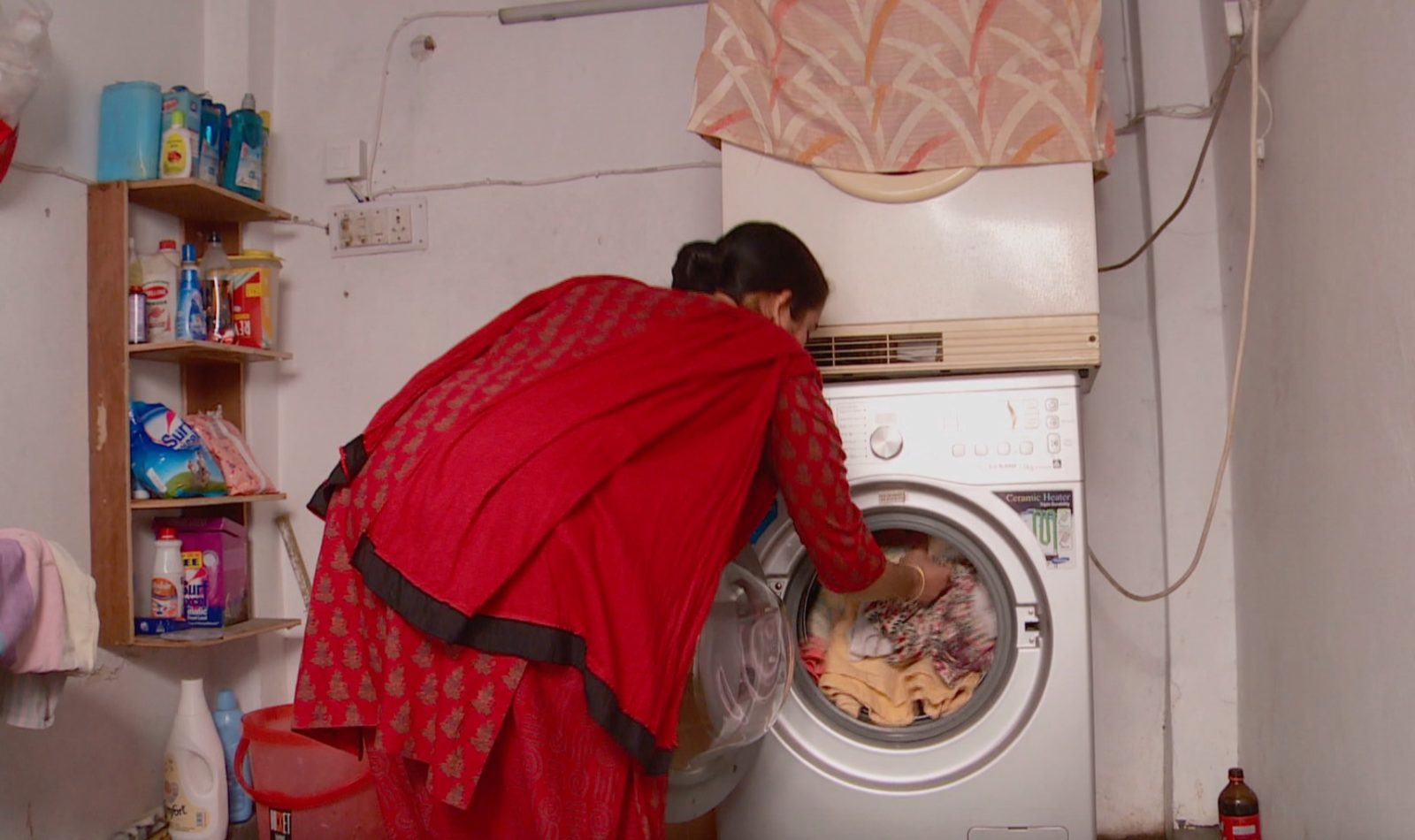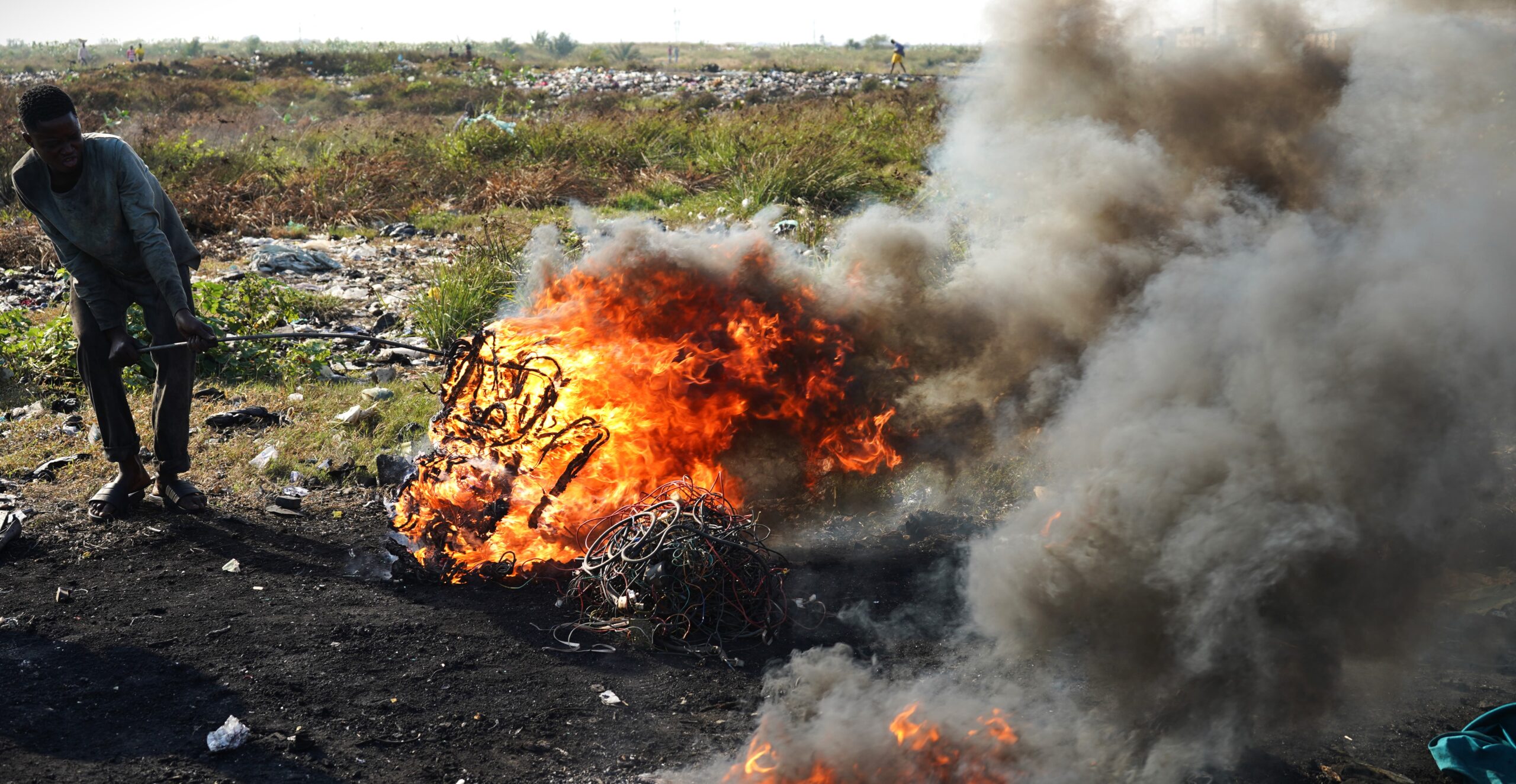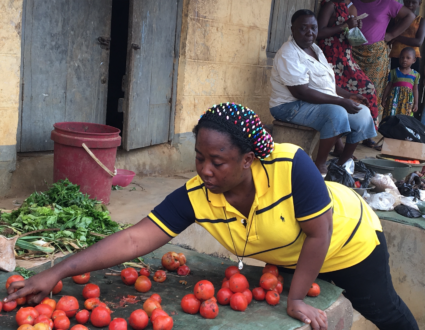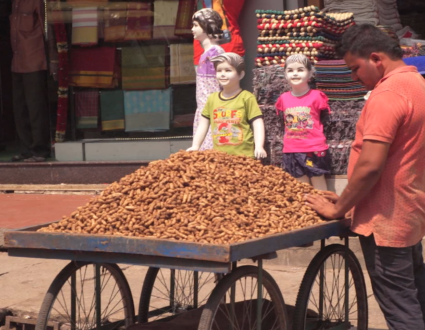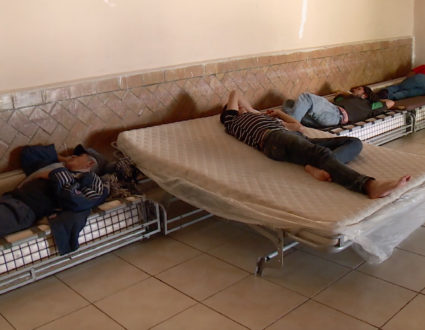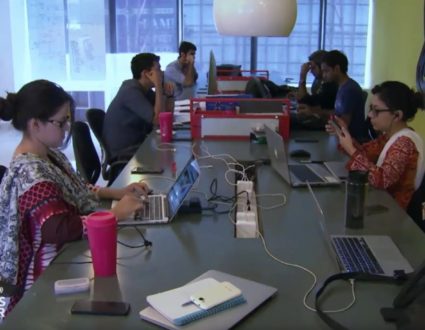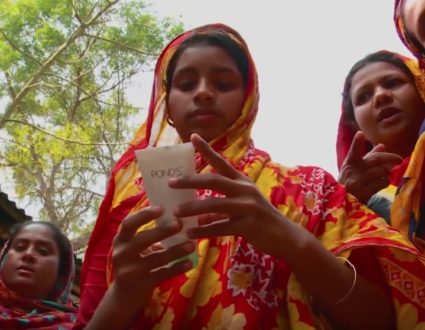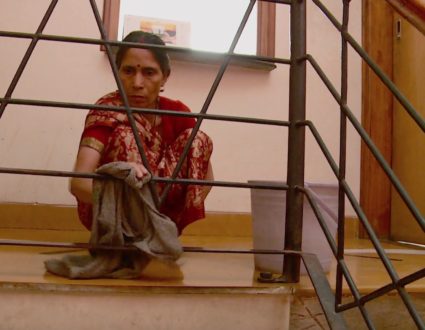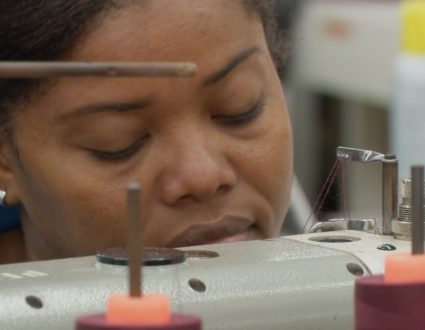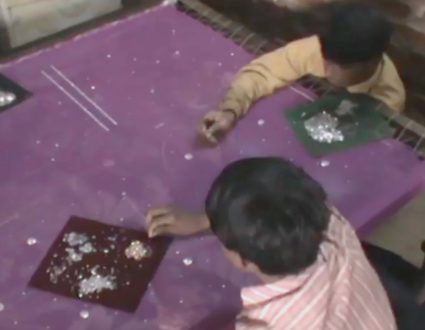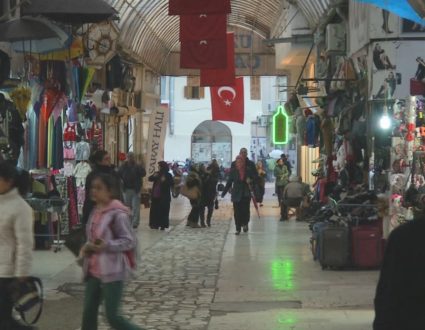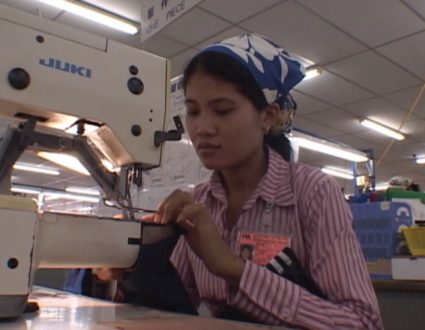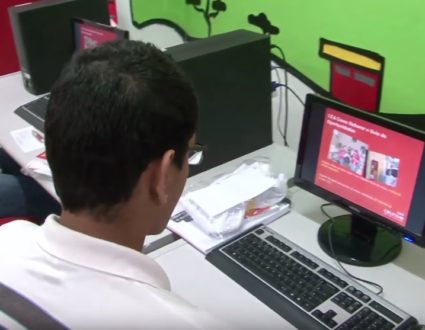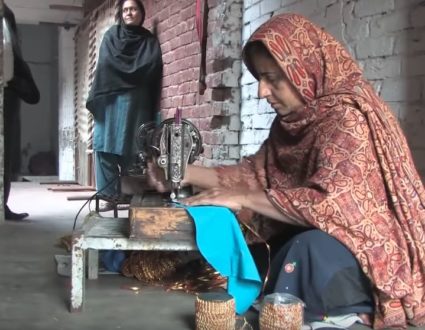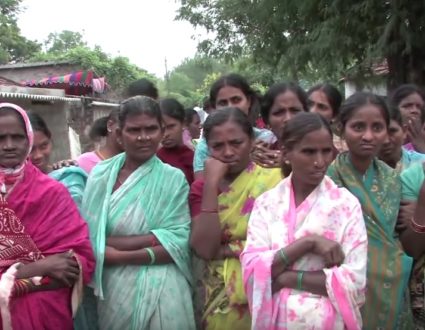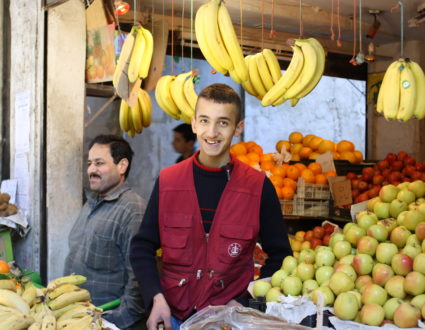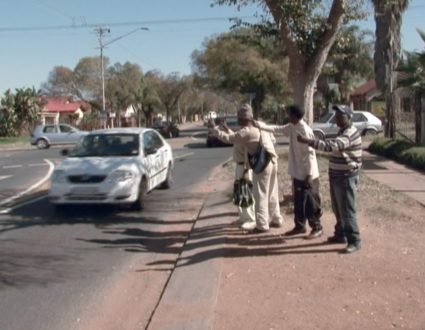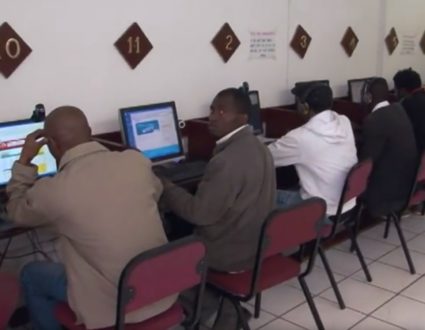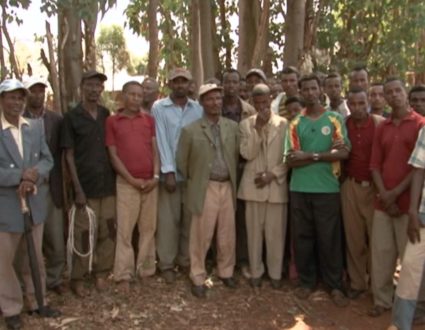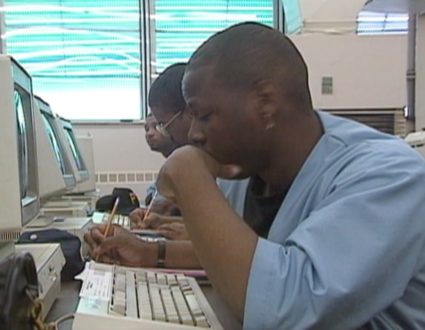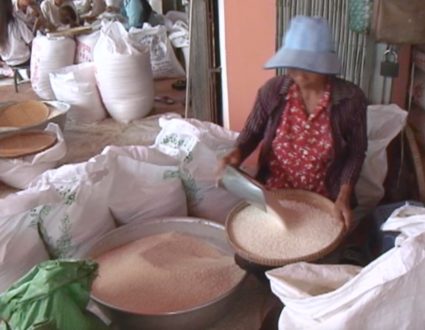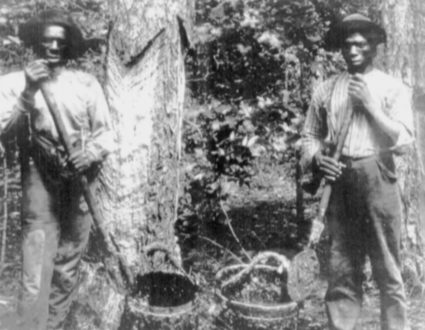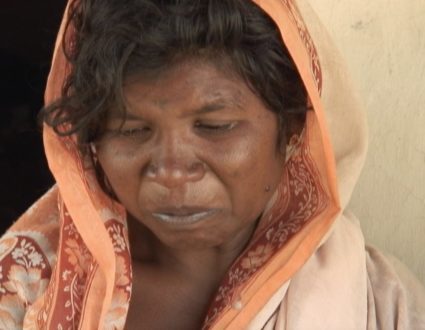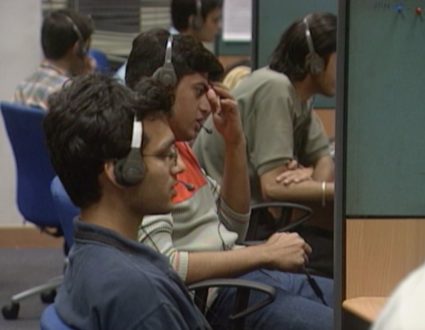GWEN IFILL: Now to the plight of one of the world’s most vulnerable populations: domestic workers.
Fred de Sam Lazaro reports from India, part of our series Agents for Change.
A version of Fred’s story aired on the PBS program “Religion & Ethics Newsweekly.”
FRED DE SAM LAZARO: Punita Taneja has a staff of four domestic workers, all living in quarters behind her large New Delhi home. She also has a gardener and a night watchman.
PUNITA TANEJA, India (through interpreter): They have specific tasks which have been allocated to them, and specific times also.
FRED DE SAM LAZARO: The workers, migrants from more impoverished parts of India, told us they were grateful for a safe home, food, and a compassionate employer, a Delhi socialite who owns a software firm with her husband.
WOMAN (through interpreter): I am from Calcutta and came here because my husband was not earning much, and things were very tough. I don’t even have an education.
WOMAN (through interpreter): Madam has trained me, and now I know how to cook.
FRED DE SAM LAZARO: It might seem like an Indian “Downton Abbey,” the epic TV series of benevolent rich employer and household help. But in India, you don’t need to be rich. Nearly everyone, from the lowest rungs of the middle class on up, employs domestics, but many employers are not like – many mistreat their domestic help, employing them in virtual slavery.
India has strong trade unions. It has laws that protect the rights of workers. But domestic work isn’t covered by them. In fact, in all but a few places, employers aren’t required to pay their domestic workers the legal minimum wage.
One of the Indian capital’s best known lobbyists for domestic workers is a Belgian nun. Jeanne Devos founded the National Domestic Workers Movement 34 years ago. It tries to organize among this vast informal work force, by some estimates as high as 40 million, mostly women. Many were trafficked into the work as children.
SISTER JEANNE DEVOS, National Domestic Workers Movement: That’s a whole network of money, racket. It’s amazing. It’s one of the biggest incomes for most people. Just go to the villages, get them poor children, sell them back in the city.
LEEZA JOSEPH, India (through interpreter): Domestic workers are very invisible. They are not recognized as workers.
FRED DE SAM LAZARO: Leeza Joseph heads the movement’s Delhi office.
NISHA RAO, (through interpreter): Everyone here is a domestic worker.
FRED DE SAM LAZARO: In this Delhi slum, we met Nisha Rao. She’s 35, and already she’s worked a quarter-century as a domestic – she’s hardly an exception.
NISHA RAO (through interpreter): This grandma, she’s is the oldest one in the neighborhood. Even at her age, she still works in two homes, doesn’t even get a day off in a month. This is a young girl.
FRED DE SAM LAZARO: Radhika is 12 and still attends school. She’s a sixth grader. But each weekday after school and on weekends, she works in a home caring for a 6-year-old child.
How much does she get paid?
NISHA RAO (through interpreter): Five hundred rupees.
FRED DE SAM LAZARO: That’s about nine dollars a month. Many domestic are trafficked as children or coerced by dire family finances or circumstances. Nisha Rao was orphaned at 10.
NISHA RAO (through interpreter): I wanted to go to school, but that was not an option. With no education, domestic work was the only option. My aunt found me a family.
LEEZA JOSEPH (through interpreter): We’re always divided by caste, but we are all equal.
FRED DE SAM LAZARO: Extreme poverty complicated by age-old caste divisions underlie many problems faced by domestic, Joseph says.
LEEZA JOSEPH (through interpreter): You don’t get respect. You have to eat off separate plates, drink from separate glasses.
FRED DE SAM LAZARO: Joseph says the largest societal indifference was evident in the diplomatic row that followed the arrest in New York last December of an Indian diplomat.
WOMAN: Officials are angry, not just at Khobragade’s arrest.
FRED DE SAM LAZARO: Devyani Khobragade was charged with visa fraud for failing to pay her domestic worker, who was also from India, far less than the American minimum wage and then lying about it.
In Delhi’s official circles, there was widespread condemnation of the diplomat’s treatment. It provoked tit-for-tat responses.
WOMAN: Security barricades being removed from the U.S. embassy in Delhi.
FRED DE SAM LAZARO: In spite of wall-to-wall coverage of the incident in India, Joseph says the charges against the diplomat got, at best, dismissive mention.
LEEZA JOSEPH: It was like, why the U.S. government is making a big issue about just not paying to a domestic worker? Because, in India, many do not pay, so for Indians, it was not a big issue.
FRED DE SAM LAZARO: How well a minimum wage of any law could be enforced is a big question. Devos’ group did manage to get domestics included in a bill that protects workers from sexual harassment. But there was strong resistance at first, she says.
SISTER JEANNE DEVOS: The rationale of the ministry of women and children was clearly the home is a home and no workplace. Finally, we came to know from people in the ministry that it was because it’s the biggest group behind closed doors, and we won’t be able to handle it.
FRED DE SAM LAZARO: The enforcement would be too difficult?
SISTER JEANNE DEVOS: Too difficult.
FRED DE SAM LAZARO: But slowly, she says, things are beginning to change, especially in the rapidly modernizing big cities.
SISTER JEANNE DEVOS: For instance, now in a city like Bombay, and you will have the same in Delhi, we have areas where there is such a demand for domestic workers, where people pay double the minimum wage. If there is a shortage of that particular group of workers, the salaries go up.
FRED DE SAM LAZARO: And for some, it’s a business opportunity. This company, named B-ABLE was started two years ago by a California native whose spouse was a British diplomat in Delhi.
SHAWN RUNACRES, B-ABLE: It was a very pure business model, helping workers find people and helping people find workers, then helping them to skill up. It’s helping them to join the organized world, rather than keeping them in the darkness.
FRED DE SAM LAZARO: The company vets and places workers in homes. Employers also send their domestic staff to gain skills. Cooking is particularly popular. Instructors themselves are former domestic worker, most from Delhi’s coveted diplomatic corps.
LALITA SUBRAMANI, B-ABLE: Since I’ve been working as a domestic worker for the Canadians, of course it did help me develop my interpersonal skills, like conversation skill or how to deal with people. So, yes, it definitely helped.
FRED DE SAM LAZARO: Among workers applying, there’s still a strong preference for foreign households.
ASHA KUMAR, B-ABLE (through interpreter): Maybe because they have to do this work themselves in their own countries, they respect this work. They don’t look at the girl who comes into their home as a slave or servant. But in the past three years, I have been placing people in Indian households. Things are changing – slowly, but they are changing.
FRED DE SAM LAZARO: Punita Taneja is a client who likes to think herself part of the shifting social mind-set.
PUNITA TANEJA: The biggest mass that we have is the uneducated mass which comes from the villages, and they are also seeking to improve their own future. So I feel if we who have been blessed with all this start reaching out, somewhere we will start making a difference.
FRED DE SAM LAZARO: But she admits it’s a small start to formalize a mostly underground industry that thrives on an abundant supply of impoverished women. For now, activists must count their victories one at a time – and perhaps in a generation.
NISHA RAO (through interpreter): From morning to night, everything I do is for my daughter, because all of the problems I’ve had in my life have been because I didn’t have an education. I want my daughter to study.
FRED DE SAM LAZARO: She can’t see the stigma ever going away, she says, and she is determined she won’t see her daughter ever become a domestic worker.
GWEN IFILL: Fred’s reporting is a partnership with the Under-Told Stories Project at Saint Mary’s University in Minnesota.
Domestic Slavery
India’s domestic workers — as many as 40 million by some estimates — are often trafficked or coerced into the trade by dire circumstances. For many it is a form of virtual slavery, as they are paid far below the minimum wage. But as big cities modernize, slow undercurrents are beginning to organize this vast, informal network. Special correspondent Fred de Sam Lazaro reports from India.
